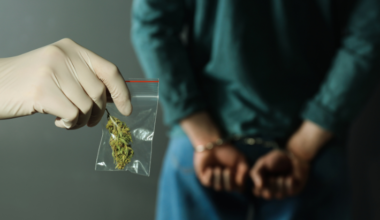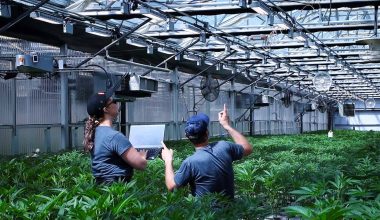Here is NORML’s weekly update on state legislative activity.
Highlights
Mississippi Becomes the 37th State to Provide Medical Cannabis Access
The Mississippi Medical Cannabis Act (SB2095) became law on Wednesday . SB2095 regulates the production and distribution of cannabis flowers and concentrates to patients with cancer, refractory pain, post-traumatic stress, spinal cord disease, and other qualifying ailments. It is the 37th state to legalize medical cannabis access.
“Marijuana access is long overdue for Mississippi’s patients,” NORML’s State Policies Manager Jax James said. “The overwhelming majority of voters decided in favor of this policy change over a year ago, and for the past 14 months the will of the people has been denied.”
In November 2020, Mississippi voters decided between two separate ballot measures that sought to legalize medical cannabis access. Seventy-three percent of voters decided in favor of the citizens’ initiative. However, Republican lawmakers later challenged the legitimacy of the state’s voter-initiative process. Members of the Supreme Court ultimately upheld that challenge – a decision that nullified the 2020 vote and also prohibits citizens from placing future measures on the ballot. (Read more.)
Minnesota: Patients’ Access to Herbal Cannabis Products Begins March 1
Minnesota is one of the few states that limits patients’ access to herbal formulations of cannabis — instead mandating them to obtain cannabis extracts or infused products. That moratorium will end on March 1, according to newly announced regulations from the Department of Health. State lawmakers passed legislation last year updating the program so that patients would be permitted to purchase up to two and a half ounces of medical cannabis flower per 14 day period, following final approval from the DOH
NORML’s long held position is that patients deserve to have access to a wide variety of cannabis formulations, including and especially cannabis flowers. (Read more)
Ohio: Activists Place Adult-Use Marijuana Initiative Before Lawmakers
The Secretary of State’s Office affirmed this week that activists collected a sufficient number of signatures from registered voters to place a marijuana legalization measure before lawmakers.
As proposed, the citizens’ initiated measure allows for the possession of up to 2.5 ounces of marijuana flower or 15 grams of marijuana extract by those age 21 or older. Adult Ohioans could purchase marijuana at retail locations or grow up to 12 plants in a private residence (where at least two adults reside).
Lawmakers now have four months to either enact the proposal as written, amend it, or ignore it. If lawmakers decide in favor of either of the latter two options, advocates can elect to gather additional signatures to place the measure before voters on the November ballot. (Read More.)
We need your help urging lawmakers to pass the initiated measure as written, legalizing recreational marijuana for adults in Ohio. Send a message today!
Pennsylvania: Informal Hearing on Legalization Scheduled for Monday
Pennsylvania State Sen. Mike Regan, a Republican, is seeking co-sponsors on a bill to legalize cannabis for those 21 and older and use projected revenue to fund State Police and community programs. The full proposal is outlined in his memo, on which the hearing will be held. Watch the first hearing on legalization in Pennsylvania’s history on Monday, February 7th at 10am ET.
South Carolina: Medical Cannabis Debate Begins in the Senate
South Carolina’s Senate kicked off debate on a medical marijuana bill (S.150) last week, marking the first time in eight years that this legislation has made it to the chamber floor.
The bill’s author, Senator Davis, said he would “take on every single argument that has been raised in opposition to this bill, and I’m going to show that they cannot stand in the way of facts and evidence.”
Send a message to your senators in support of medical cannabis access.
South Dakota: Lawmakers Reject Legislative Efforts to Restrict Medical Cannabis Access
State lawmakers have rejected a series of legislative proposals that sought to curtail how and where patients could access and use medical cannabis. (Read more.) Defeated bills include:
- House Bill 1004, which sought to repeal provisions from the state’s voter-approved medical cannabis law that permit qualified patients to home-cultivate personal use quantities of the plant, failed to move out of the Senate committee by a 4 to 2 vote.
- House Bill 1095, which sought to allow local governments to prohibit medical cannabis establishments, was defeated on the floor by a vote of 33 to 31.
- House Bill 1094, which sought to add additional restrictions regarding where patients could legally possess or use medical cannabis, was similarly killed on a floor vote.
Utah: Lawmakers Advance Bill to Governor’s Desk Protecting State Employees From Workplace Discrimination for Medical Cannabis Use
Lawmakers in the Utah House and Senate overwhelmingly approved legislation, Senate Bill 46, protecting state employees from being sanctioned in the workplace for their off-the-job use of medical cannabis. It now awaits action from the Republican Gov. Spencer Cox. (Read more.)
Commenting on the effort, NORML’s Deputy Director Paul Armentano said, “While this bill is somewhat limited in scope, it is consistent with the laws of a growing number of jurisdictions that recognize that off-hours cannabis use poses no legitimate threat to either workplace safety or productivity. Tens of millions of Americans consume cannabis responsibly while in the privacy of their own homes and it serves no purpose to allow employers to unduly discriminate against them.”
Additional Updates
Alabama
Senate Bill 160 seeks to amend criminal penalties for personal possession of up to two ounces of marijuana If passed, it would continue to classify this act as a misdemeanor, but it would make the violation punishable by a fine only. The bill also provides for potential expungement opportunities for those who have been charged or convicted of certain marijuana possession offenses.
Current state law punishes minor marijuana possession offenses by up to one year in jail. .
Send a message to your lawmakers in support of this effort.
Alaska
HB 246 seals the records of those low-level crimes from nine certain types of criminal history background checks. People with otherwise clean records do not deserve to have the rest of their lives derailed because of a past marijuana conviction that would no longer be prosecuted today.
Update: A hearing on this bill was held on Friday, January 28th, 2022, where the bill advanced unanimously.
Send a message to your legislators in support of this effort.
Colorado
Senate Bill 099 seeks to streamline the existing automatic record sealing process for marijuana offenders and extend this process to other l offenses.. If passed, this bill would also provide employment and tenant protections for those with a sealed criminal record.
Send a message to your lawmakers in support of this effort.
Illinois
Legislation is pending to facilitate equity among those licensed to operate in the cannabis industry. HB 4298 would include preferences for an applicant that is 51% or more owned and controlled by at least one qualified individual with a disability.
Send a message to your lawmakers in support of this effort.
Maine
Legislative Document 1957, seeks to remove existing prohibitions in law that prohibit the participation of people with prior drug offenses in the cannabis industry . If passed, the bill would amend rules of disqualifying drug offenses so that individuals can legally engage in the state’s cannabis industry. In addition, they will finally be able to act as caregivers for qualifying medical patients and serve as long-term care facility staff, whereas state law currently prohibits these activities.
Send a message to your lawmakers in support of this effort.
South Dakota
Senate Bill 177 expands access to the state’s existing medical marijuana program by allowing qualified patients from tribal communities to purchase medicine outside of their reservation, and would also allow a tribe the right to develop their own cannabis programs under tribal law.
Send a message to your lawmakers in support of this effort.
West Virginia
House Bill 4436 decriminalizes the use of cannabis, allowing adults age 21 or older to possess up to one ounce of dry marijuana flower, while establishing rules and regulations for retail sales, providing for social equity licensing with a focus on minority-, women-, and veteran-owned businesses, expanding employment protections, granting clemency to nonviolent marijuana offenders currently incarcerated, on probation or on parole, and expunging all cannabis-related offenses from a person’s criminal history records. This bill would have no impacts on the existing medical marijuana program other than expanding employment protections for those who lawfully consume cannabis.
Current state law criminalizes the possession of any amount of marijuana as a misdemeanor punishable by up to 6 months in jail and a $1,000 fine.
Send a message to your lawmakers in support of this effort.
Wisconsin
SB 545 and AB 846 permit qualifying patients, as well as all adults, to legally possess and purchase up to two ounces of marijuana from licensed retail outlets (out-of-staters could possess up to 1/4 ounce). Both patients and non-patients would be permitted to grow up to six cannabis plants at home.
It also establishes regulations for the production and retail sale of marijuana to anyone over the age of 21, in addition to establishing a regulated system for qualified medical marijuana patients to access their medicine without having to pay taxes.
The legislation would also facilitate the expungement of certain past marijuana offenses.
According to statewide polling data, 59% of Wisconsin residents support legalizing recreational marijuana, and 83% support legalizing medical marijuana.
Send a message to your lawmakers in support of this effort now.
Learn how to become a member of NORML. Make a donation towards our important work. Shop at the NORML store. Take action!
Related
Medical Disclaimer:
The information provided in these blog posts is intended for general informational and educational purposes only. It is not a substitute for professional medical advice, diagnosis, or treatment. Always seek the advice of your physician or other qualified healthcare provider with any questions you may have regarding a medical condition. The use of any information provided in these blog posts is solely at your own risk. The authors and the website do not recommend or endorse any specific products, treatments, or procedures mentioned. Reliance on any information in these blog posts is solely at your own discretion.






